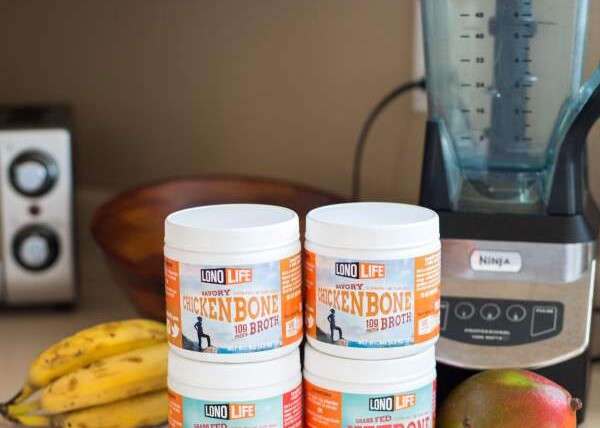-
Sleep hygiene explained
-
Why quality sleep is so important
-
Steps you can take for better quality sleep
-
Other steps to keep your immune system strong
Eat well, sleep well, be well.
Although life may not always be this simple, there’s a lot to be said for following a healthy, nutritious diet and getting enough quality sleep each night.
With a global health crisis in our realm, there’s probably never been a better time to examine our daily habits and see how we can improve them to make sure our immune systems are working at their best. We talk a lot about food and nutrition over here at LonoLife, so we figured it was time to explore the role that sleep plays in our overall well being a little more.
Read on to find out what “sleep hygiene” really means, and why it’s so important for your health.
“SLEEP HYGIENE” EXPLAINED
Sleep hygiene essentially refers to good sleep habits that lead to a good night’s sleep. Or, as sleepfoundation.org explains it, “Having both a bedroom environment and daily routines that promote consistent, uninterrupted sleep.” If you’re wondering what constitutes a “good night’s sleep,” according to the Centers For Disease Control and Prevention (CDC), “Adults need “7 or more hours of sleep per night for the best health and wellbeing.” Some would argue that even this isn’t enough, and that we should be aiming for a minimum of eight hours.
WHY QUALITY SLEEP IS SO IMPORTANT
While you probably don’t need us to tell you how rotten you feel after a night spent tossing and turning, did you know that a good night’s sleep has been scientifically proven to affect everything from your physical and mental health to your overall quality of life?
⇨ Brain health. While you sleep, your brain gets busy — preparing you for the next day, forming new pathways and helping you learn and remember things from the previous day. A lack of sleep can alter activity in some parts of the brain making it harder to make decisions and control emotions. It’s even been linked to depression.
⇨ Physical health. According to the National Heart, Lung, and Blood Institute, “Ongoing sleep deficiency is linked to an increased risk of heart disease, kidney disease, high blood pressure, diabetes, and stroke.” Sleep deficiency is also linked to a higher risk of obesity.
⇨ Immune health. And, then there’s this: Your immune system needs quality sleep in order to stay strong. Sleep deficiency can lead to a lowered ability to fight infections, and that’s not something any of us want to take lightly right now.
STEPS YOU CAN TAKE FOR BETTER QUALITY SLEEP
Can we actually improve our sleep, or are we just programmed to be a “good” or “bad” sleeper? Fact: we can all take steps to improve how long and how well we sleep, and some of those steps are incredibly simple.
⇨ Keep it cool. Well, your bedroom anyway. Studies show that we sleep better in a cooler bedroom, ideally around 65 degrees. While you’re at it, close the shades and try to make the room as dark as possible.
⇨ Stay consistent. Try to keep to the same bedtime and wake time each day, even at the weekends if possible.
⇨ Move. Before bed, that is. By packing in enough active (preferably outdoor) time, your body is more likely to welcome sleep when nighttime falls.
⇨ Power down. This might be one of the most challenging steps, but it really makes a difference: An hour before bedtime, switch off all your devices (TVs, phones, laptops etc.) and remove your phone from your bedroom. The light emitting from these devices can trick your brain into thinking it’s time to be awake.
⇨ Eat early and eat light. Contrary to what many of us actually do, the best kind of dinner for a good night’s sleep is a light one eaten early. At the very least, avoid eating a couple of hours before bedtime. If you feel the need for an evening snack, we highly recommend a calming, warm cup of LonoLife Bone Broth!
⇨ Adopt a bedtime routine. Take a warm bath with Epsom salts. Listen to a story on the Calm app (who doesn’t want to fall asleep to the dulcet tones of Matthew McConaughey?!) Meditate for 20 minutes. Whatever relaxation techniques resonate with you, incorporate them into your nightly routine.
OTHER STEPS TO KEEP YOUR IMMUNE SYSTEM STRONG
While sleep plays a big role in how well we function, there are a few other simple steps we can take to keep our immune system strong.
- Eat well. Cut out processed foods, and pack as much nutrition into every bite as you can. Keep your snacks healthy too. Try the new LonoLife Chicken Bone Broth Noodle Soup for a supercharged, protein-packed, tasty snack on-the-go. If smoothies are more your thing, check out this blog post featuring 3 Immune-Supporting Super Smoothies (with collagen.)
- Take 5. Actually, take at least 30 (minutes dedicated to you) if you can. Whether you use this to meditate, practice yoga, walk barefoot in the sand, or simply feel the breeze on your face, it’s essential to take time to be mindful. Studies such as this one have even shown that meditation can reduce inflammation markers and effect other physiological changes that support the immune system.
- Maintain a healthy weight. Obesity puts a lot of stress on the immune system so keeping within a healthy weight range is really important. Not sure if your weight is edging towards the “unhealthy” zone? Check out this handy Body Mass Index (BMI) calculator.
While there are plenty of other things you can do to stay healthy (check your vitamin D levels, wash your hands often, cut back on stress etc.) starting with a good night’s sleep is a critical first step.
So, turn down the thermostat, switch off those devices, chill in the bath and tune into a sleep story… You’ll be floating off to dreamland before you know it!


























